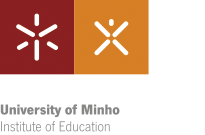The 3-year Degree in Education trains senior professionals of Education/Training capable of intervening in various educational settings, by providing the adequate knowledge and skills that would enable them to: observe and analyse socio-educational contexts of organisations with educational and training competencies and of activities where there are educational, training and lifelong learning dimensions; perform support functions in identifying educational problems, in the curriculum design of degrees, in planning, organising, managing and evaluating programmes and projects, in training educators and agents of local development in youth work, in the community intervention and in mediation. This cycle of studies provides graduates in Education with knowledge and skills that enable them to act within and outside the Educational System, particularly in terms of Education, Training, Training Management, Social and Community Intervention and Educational Mediation.
Bachelor in Education
2025/2026
Academic degree:
-
Bachelor (Bologna 1st cycle degree)
Duration:
6 curricular semesters
Place:
Gualtar Campus, Braga (UM)
Contacts
Institute of Education
Campus de Gualtar
4710-057 Braga
Tel:
+351 253604240
Fax:
+351 253604659
E-Mail:
cpedagogico@ie.uminho.pt
URL:
http://www.ie.uminho.pt
Description
The Bachelor's degree in Education prepares professionals or higher education technicians with skills to work within and outside the educational system, at all levels, and in various intervention modalities (education, training, training management, mediation, etc.). As such, graduates in Education develop competencies to perform functions such as:
- Education and training for citizenship.
- Pedagogical training of trainers, design of training projects and programs, and socio-educational intervention.
- Personal, professional, and social development training, adult education, community education, and cultural animation.
- Socio-educational intervention with at-risk groups, social integration, and mediation.
- Management, coordination, and supervision in public and private organizations related to education, training, community development, including social centers and Social Security.
The Bachelor's degree in Education is structured into three scientific areas: Basic Sciences of Education, Research and Intervention Methodologies in Education, and Introduction to Professional Practice. It promotes a comprehensive human education, encompassing ethical, cultural, scientific, artistic, technical, and professional dimensions. The curriculum is designed to provide a solid foundation, complemented by a diverse set of options, and offers students the opportunity to engage with potential professional contexts from the first year of the course.
Key learning outcomes
Upon completing this degree, students will:
1. Gain broad knowledge of educational and training phenomena within their political, social, and community contexts, drawing from different basic disciplines of Education.
2. Contribute to the critical analysis of educational institutions, organizations, and socio-educational intervention systems, including their policies, objectives, contexts, and processes.
3. Acquire methods and research techniques in education to support the realization of characterization studies, diagnostic work, and identification of needs.
4. Be equipped to plan, organize, manage, and evaluate education and training programs and projects.
5. Receive methods and techniques to support the curriculum design of training actions.
6. Be provided with methods and techniques to assist in pedagogical decision-making and evaluation.
7. Apply educational and training methodologies in diverse socio-educational contexts.
8. Gain an adequate introduction to professional practice to facilitate the graduates' integration into the job market, through activities involving observation, reflection, analysis, and educational intervention in work contexts under appropriate guidance.
Access to higher education
This course provides the technical-scientific capacity to access the next level of education: Master's degree.
Careers
In accordance with the course's competency profile, graduates are qualified to work in socio-educational contexts and educational and training institutions, including schools, social protection centers, health centers, day care facilities, family and minor courts, cultural centers, museum educational services, foundations, libraries, special education, reeducation and social reintegration centers, adult and lifelong education services, cultural and social action municipal services, cultural, recreational, and sports associations, consulting and training companies, vocational training centers, among others.
A3ES Accreditation status:
Resolution publication date:
Registry number at Ministry:

